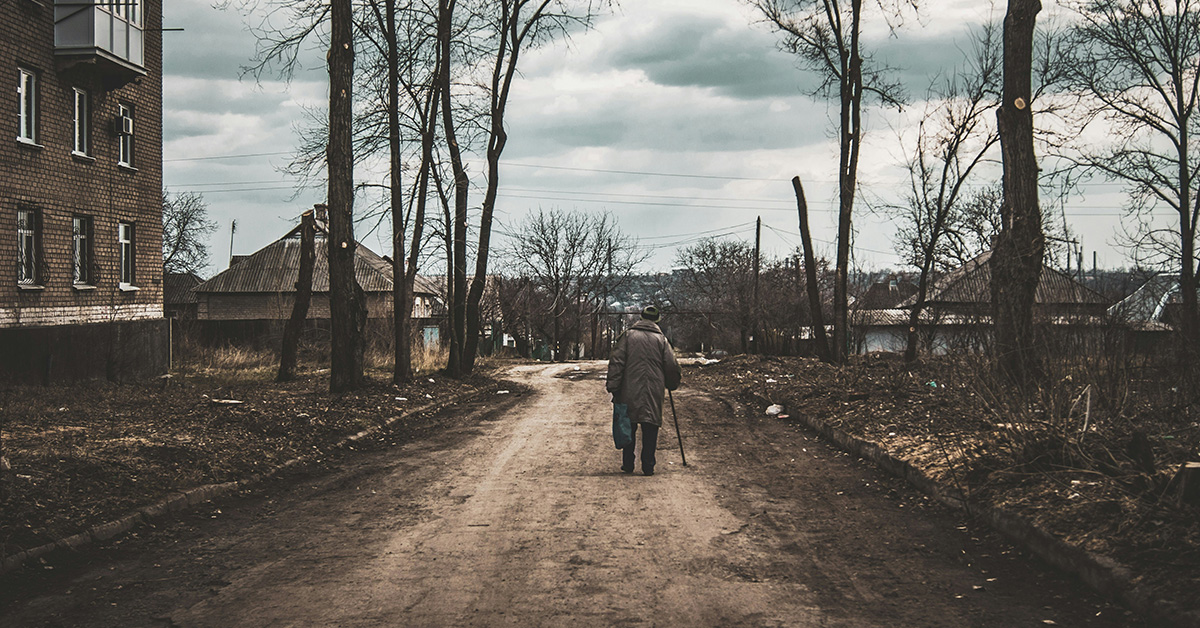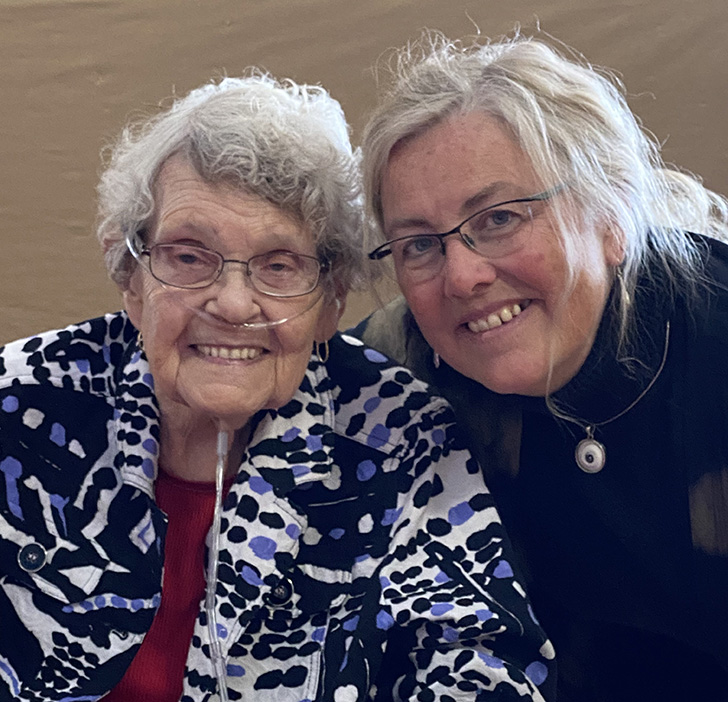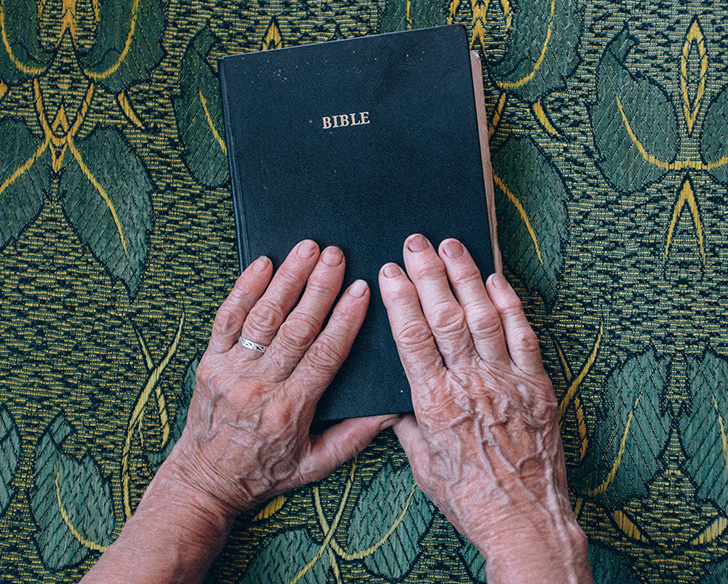

For six years now, as a chaplain, I’ve wandered halls, met and visited so many old souls, now well into their 90s. You might think it’s a dull calling, but the truth is, if you’re curious about characters getting through life, then people are wonderfully interesting. Like snowflakes. No two alike. The memories that are glued in their minds after all these years are revealing.
I am forever grateful that my father showed interest in people, and was an example to me of considering others first. He recommended asking people questions, for they love to be respected in this way and share their life experiences. So, each day I visit a different level of care home where the residents who have their roots in Russia, Germany, Romania, the Czech Republic, Japan, Norway and Denmark, have all learned English, while many of the staff responsible for their care communicate between themselves in their foreign language. The residents hesitate to ask them to speak English for fear of retaliation. They are well aware that they no longer have the luxury of living by their own schedule. You brush your teeth when the support worker helps you.
I enter the world of senior care as a stranger, with my book bag, filled with music and a notebook, a Bible in one hand and a mug in the other, with my name engraved on one side, and “The steadfast love of the Lord never ceases, His mercies never come to an end. They are new every morning. Great is Thy faithfulness oh Lord” from Lamentations 3 on the other side. Politely introducing myself, I get offered a seat, even if it’s the corner of the bed, and a relationship begins. (A folding fishing stool works wonderfully in the hallway, so I’m not looming over people, but can chat with them face to face).
The wing that made my heart beat just a little harder was the lock-down floor: the Alzheimer area. How would I begin there? Entering the code and hearing the big doors click and unbolt, I walked in smiling, but wondering what this morning would hold. “Oh God, give me a sign of how to begin.” To my left, behind a glass wall was a large dining room filled with residents, and if I could have put my hand through that glass wall, I would’ve touched a piano. With my small collection of cherished gospel songs, I walked in, sat down to play some dinner music, my back to the people and my heart calming down. After the meal a few daughters and sons came to tell me they hadn’t heard their mother string a sentence together in a few years, but that she had just sung a few lines of “In the Garden” as I played. Thank you, God! And that was the beginning of an Alzheimer’s choir.
This is such an unpretentious choir. Some stand very tall, and enunciate as best they can. Some whistle, some sing the same line through the entire song, some try to harmonize, some hold hands, some sway back and forth like synchronized swimmers, and we’re joyful, praising God in our unconventional ways together. It doesn’t matter that we don’t remember each other’s names. There’s pure joy in being together when they hear me announce, “Yeah! The choir’s all here!” They sing, they listen, they clap, they move to the rhythm and it is well with our souls. Music speaks where words fail.
In the three facilities, people would describe themselves as feeling vulnerable, unsure, useless, and sometimes worthless, a burden to their family who are relieved their loved one is in a facility. I pause. A loved one? Someone who might get a visit once a month, or once a year? So what is my purpose as chaplain? To be a loyal friend, a ray of light in someone’s last chapter of life or perhaps just for a 20 minutes visit, which they might not remember when I walk out the door, which does not matter at all.


Communication
When visiting, I am hyper focused on my communication style. It starts with a cheerful hello! So glad I found you, or I was looking for you! A little hand hug on the arm or shoulder, or a real hug without latex gloves on, and a comfortable sit down, indicating I’m not in a rush or on a time limit. I want to be present, interested, engaging and affirming so they can trust our connection by seeing it on my face, my smile, my eyes, my touch, and by sharing comfortable, relaxed time together.
Because of some significant change in their lives they’ve had to move into a seniors’ facility, away from everything familiar. They feel disoriented, unconfident, inconvenienced. They are asking themselves, “How do I fit in now, and where do I fit in?” For some it’s as though the school bus dropped them off and they’re waiting for the ride that never comes to pick them up again. I sometimes hear them say, “Oh, my brother is coming any minute now. I need to sit by the door.”
Loneliness sets in in this foreign building, this small room now called their home, and loneliness is a terrible thing which can have awful consequences. Doctors in Britain recognized its effects and decided to begin using social prescribers versus antipsychotic or depression medications. They arranged befrienders with similar interests who would accompany the anxious and depressed person to social engagements and appointments. British prime minister, Theresa May took this seriously, and created a position of Minister of Loneliness to which Tracey Crouch was appointed in January 2018.
So I ask a few questions of the people who are in life review, reflecting on where they came from, why they are at the place they’re at now and where they are going, and most love to talk and tell their story. There is healing power in sharing stories. Catharsis, sharing, laughing, mourning and remembering together, can be good for the soul.
Which people walk these memory lanes of transitions, challenges and suffering with them can make a significant difference. Walking with someone they can trust, someone caring, kind and patient, can ease their souls and even stop the pain from becoming overwhelming. It’s been vital to consider how to lead these conversations: not feed the grudges and sorrows, but to have them consider who showed up to help in hard times, and if people are believers, how God showed up and sustained them, nourished their souls with his promises in Psalms 12; 23 and 139:16.
Togetherness
As the years went by, I felt the weight of being one half-time chaplain for three facilities. I believe that we’ve all been created to create, so maybe all I needed to do was discover people’s interests and passions, and create a small group with similar interests, a little community within the home where friendships could be forged. There’s a heartwarming, comforting effect on people when they gather together in small groups. My first group was created when I sat knitting in the coffee room with a few ladies who loved the colourful children’s socks I was working on. Coffee and stories are a great combination, and soon I was learning about raising sheep, spinning wool, knitting for their families and for the boys in the war. Within two weeks I thrifted 20 pairs of needles, bags of leftover yarn, cast on 30 stitches for everyone and the first Knit and Natter group was founded.
Our blanket of squares of many colours and various sizes was stitched together by a 95-year old knitter from another home during Covid, when the local hospital couldn’t accept her 300 preemie hats. Since then connections have been made at other weekly group gatherings, singing sacred songs around an organ, remembering God’s grace and faithfulness in their lives. Creating a songbook with a huge font, helps those with failing eyesight. I brought in seeds, soil, pots and gardened with individuals, and presently we have a book club with 20 attendees that I read to weekly – a delightful hour of sharing a book with tea and cookies. Coaxing a few of the great storytellers to attempt writing the odd short story has been amazing as well. Imagine their joy when some of those stories were published for the residents of the Lodge to read.
This chaplaincy is so unique. Having a wonderfully supportive board, and being the first chaplain in these care homes has allowed me to be as creative as my energy allows. I never need to write a sermon or perform a funeral service. I am just required to befriend those who are faltering and friendless, and be a signpost to Christ. The walk on the road to Emmaus can happen in many places. Perhaps taking a walk with someone in a wheelchair so they can have the pleasure of hearing the birds and seeing the flowers coming up, sitting with the smokers on their patio, taking someone for a drive past their farm that they developed from bare land. Just because people slow down as they age, their gifts and the things they were passionate about don’t vaporize. Being curious about other’s interests and abilities shows empathy, and can bring respect and comfort, which helps them not feel alone.
After each visit, I ask if I can pray for them and their loved ones. Remarkably, in these six years, no one has declined my offer of prayer, whether a believer or not. Those who I consider masters of ageing are the ones who exercise their grateful hearts, even though there are many disappointments that they could focus on. Those who practise being still and mindful of the blessings of the day are the winners of the ageing race. They focus on the promises of God, that he knew them before they came into being and had a plan for all the days numbered for them.
If only my feeble attempt of sharing about the humanness of aged seniors and chaplain visits could inspire you to commit to a level of loyal friendship with a senior in your neighbourhood. The thread that binds us all together is that we don’t want to walk the last chapter alone. Committing to a friendship with a shut-in senior might grow on you! Be interested, curious, challenge yourself, try something new and know you’re making a difference in someone’s day. You might be surprised by joy as you do.
Eileen lives on a small farm in rural western Canada where she enjoys gardening, honey hives, horses in the pasture and knitting in the winter.
The Kirby Laing Centre for Public Theology in Cambridge. Charity registered in England and Wales. Charity Number: 1191741
Kirby Laing Centre, The New Mill House, Unit 1, Chesterton Mill, French’s Road, Cambridge, CB4 3NP
© 2024 The Kirby Laing Centre for Public Theology in Cambridge